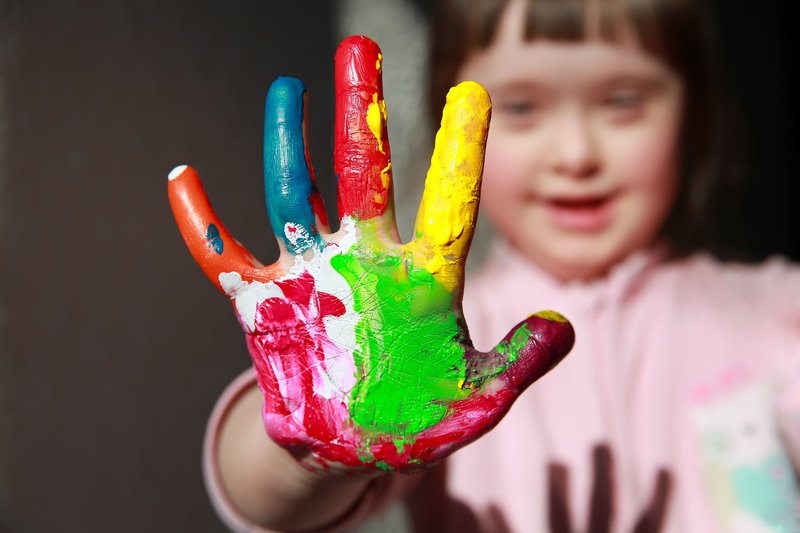Six lessons I learned from raising a child with Down syndrome
Updated | By Tamlyn Canham
Angie Govindsami shares the biggest lessons she learned from raising a child with Down syndrome.

Roughly two in 1,000 children are born with Down Syndrome in South Africa.
But few people understand the chromosome disorder, and what it means for children born with the condition.
We talked to Angie Govindsami, branch manager at Down Syndrome Association KZN, to find out more.
She says Down syndrome is a lifelong condition that a person is born with.
“There are three types of Down syndrome: trisomy 21, translocation, and mosaicism. The most common is Trisomy 21. It is easily recognisable because persons born with Down syndrome present some common physical characteristics because of the extra chromosome.”
Angie says some of these characteristics include low muscle tone, small stature, an upward slant to the eyes, and a single deep crease across the center of the palm.
“Every person with Down syndrome is a unique individual and may possess these characteristics to different degrees or not at all. The extra chromosome affects the intellectual capacity of a person with Down syndrome. This varies from person to person. It can range from mild to severe intellectual challenges.”
She knows first-hand what it is like to raise a child with Down syndrome.
Angie's 14-year-old son Damien has Down syndrome.
“I have learnt to be more understanding, patient and to love abundantly because that’s what my son has taught me. Never to judge anyone no matter what their strengths and weakness are. People born with Down syndrome are people. We must acknowledge them as people. They are just like everybody else with dreams [and] feelings. They should be treated like any typical child," she says.
Here are some of the biggest lessons she has learned from being a mom to a child with Down syndrome.
People will have misconceptions about your child
“For example, slow and sometimes inaudible speech is misunderstood and people tend to complete sentences for them. People tend to ask yes/no questions thinking that it is the only pattern of response known. This is untrue. People with Down syndrome can understand and interpret questions posed to them. The listener just needs to be patient and wait for a response.”
The journey will be challenging, but worth it
“Damien was born with two disabilities, one being Down syndrome and the other was a high anal malformation which he needed immediate surgery for. So that was my biggest challenge, for the first two years of his life I could not look after him like a normal child, could not change his diaper like any other parent would, he had a colostomy and that was my biggest challenge, and I thank God that I can look back today and smile because we have overcome all the challengers and he is “normal in that sense today”."
Down syndrome children can succeed with the right support
“Children with Down syndrome are beautiful people. They have the potential to succeed given the opportunity and support. They are hardworking and work effectively with set routine. They have many strengths and talents. We have many success stories of people with Down syndrome excelling in sports, gymnastics, teaching."
They are fighters despite the odds stacked against them
“Some hold jobs with amazing track records of productivity and excellent attendance. Such individuals have succeeded against the odds because of advocacy and opportunity coupled with open mindedness of prospective employers. People with Down syndrome attend school, work, participate in decisions that affect them, have meaningful relationships, vote and contribute to society in many wonderful ways."
Children with Down syndrome should be accepted into schools nearest to their residence
“The inclusion model has shown that both typical children and children with Down syndrome benefit from schooling together. They are very social beings and enjoy company and activities. They need to be stimulated to respond to conversations and activities just like every child their age. They also have moods and tantrums which must be treated with firm love.”
Don't be afraid to ask for help
If you are a first-time parent to a child with Down syndrome, or would like to know more about the condition, you can contact the Down Syndrome Association KZN for more information.
“Our trained and friendly staff will provide support and walk the journey with you from diagnosis onwards,” says Angie.
Down Syndrome Association KZN
Telephone: 031-464-2055
Email: [email protected]
Show's Stories
-
Petrol price: What you can expect in August
With global oil price movements, there may be some good news for petrol ...
Stacey & J Sbu 3 hours ago -
Red flags in the workplace that could cost you your job
Workplace habits matter. It's important to avoid behaviours that signal ...
Stacey & J Sbu 3 hours ago